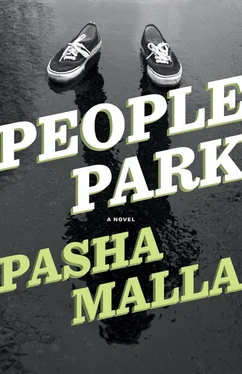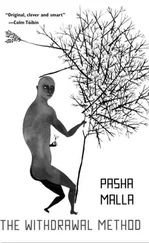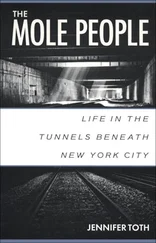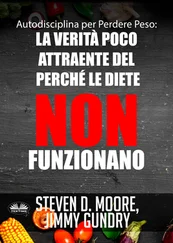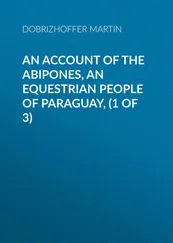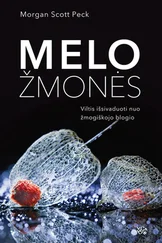In October Sam and Adine came home one afternoon and a bicycle was leaning against their front steps. Inside a hardhat sat on the kitchen counter and mud had been tracked down the hall to their mama’s bedroom, the door was closed. At dinnertime she came out with a man she told Sam and Adine to call Uncle Bruno, but he was no uncle of theirs, they called him nothing. Bruno never said much to anyone, and around him their mama spoke in a whisper like she was embarrassed or sorry for something. He drove the crane, they learned, that swung a big ball on the end of a chain into their neighbours’ units and turned the walls to dust.
As the weeks went on and the Park Project crept north Bruno moved in, frying bacon every morning that he never shared with anyone, at night he took over the TV with his workboots up on the couch. With their mama at work and nothing else to do Sam and Adine hid inside the armoire and told each other the stories of TV shows they’d watched, including the one with the terrorist who made a bomb from batteries he was going to use to blow up an airplane — before, of course, he was stopped. They were always stopped.
The day of the first snowfall of the year, Sam and Adine came home from school to their mama crying in the dark in the living room, two bits of bloody paper towel stuffed up her nostrils. The matching ashtrays were smashed on the living room floor and there were cigarette butts everywhere. Bruno was gone. Adine swept up and then she and Sam sat with their mama, one on either side of her on the couch, each holding a hand. That night in the armoire they made up a new story, and it was about bad strange people coming from the outside and ruining everything, and it ended with revenge.
The next morning, a Saturday, Sam and Adine woke up and their mama was still sleeping. As quietly as they could, they rounded up all the batteries in the house, emptying flashlights and smoke detectors and other various small electronics — and put them all in the tin can of bacon grease that Bruno had left on the ledge above the stove, and last of all dug a pack of matches out of one of the drawers. We need more batteries, said Sam, so they stole one small bill from their mama’s purse and went to Street’s Milk and from the Polyp behind the counter bought the biggest battery they could afford.
This was November, the Park Project was demolishing C-Block. Then work would break until the spring, when Sam and Adine and their mama were supposed to move to some new big building across the city. The workers took weekends off too, though their equipment — backhoes and diggers and tractors and bulldozers — remained onsite. So this is where Sam and Adine headed: through the fence, their makeshift bomb ready, toward the big tall crane and its wrecking ball, inside the shadows way down in the pit.
IN THE TRAUMA ward of City Centre Hospital, Sam stood beside his mama as the doctor explained what had happened to Adine’s eyes and when his mama said, So she might be blind, it seemed she was almost wishing it. There was a cold, white sharpness to her voice. The doctor said something about surgery, and recovery, and that it was good she was young — but Sam’s mama just said again, She’s blind, and rocked a little on her feet like she might fall. Sam put his hand on her lower back to steady her and at his touch she stiffened and wriggled away. Thank you, she said to the doctor, and sat down on the other side of the waiting room. The doctor looked at Sam and smiling in a soft kind way asked if he wanted to see his sister. Sam did not but he had nowhere else to go.
They went through two sets of doors and down a hallway and stopped outside a room. In a bed underneath a window slept a person that was almost Adine. Beside the bed was a chair. The doctor gestured at the chair and left. Sam didn’t move. Bandages hid his sister’s eyes. Across her cheeks were dark ridges and speckles of dried blood where gravel and battery acid had sprayed up from the ground. A big cut on her chin had been stitched with crude blue knots. Tubes ran from her arms to machines that beeped and hissed. Another tube ran to a box on the floor. Under the blankets Adine’s chest rose and fell, rose and fell. Sam leaned over the bed, watching his sister breathe.
What the fug are you doing, said his mama’s voice from the doorway, and Sam stepped away from the bed.
He didn’t know where to look or what to say. His insides felt hollow, scooped out.
You aren’t even going to cry, his mama said. You haven’t even cried.
She leaned against the wall in a small hunched way.
You did this to her and you can’t even fuggin cry?
Sam looked out the window: a pretty sunset over the city, big fat bands of gold and pink that darkened into mauve, indigo, all the way to black.
The last thing he’d seen before the explosion was Adine squatting over the coffee can, igniting the fuse, the fast sizzle of it, the thunder of the bomb blowing, a cruel ripping sound as the can sheared in half, and so much light.
It left a tone in his ears like when the TV went to coloured bars at midnight. He sat up, discovered Adine sprawled with her limbs at weird angles, the coffee can split and blackened between her feet. Sam went over. Through the thrashered mess of her face she seemed to be looking up at him for an answer. The gore was black in places, wet and raw in others. You couldn’t see her eyes.
On the taxi ride to the hospital his mama screamed Fug fug fug in the backseat with Adine’s head in her lap, his sister’s face not so much bleeding as just opened up, as if the top layer of skin had been wiped away. Sam noticed that he’d torn the knees of his jeans — and for a moment thought that this would be why he’d get in trouble.
A nurse appeared and whispered something to Sam’s mama. Outside the sky had gone purple. Okay, said his mama, Sam, we’re going home. There’s nothing for us to do here now. There’s nothing we can do.
At home Sam sat inside the armoire thinking about blindness, that his sister could be blind. He closed his eyes to see what a blind person saw: black. But still he could perceive a thread of light between the armoire’s doors, facing it the darkness behind his eyelids brightened.
He heard his mother shuffling down the hallway and called to her.
What do you want, said her voice. Why are you in that thing.
Mama, said Sam.
There was a pause and three short barks that was his mama coughing. And Sam looked and there she was, through the crack between the doors, her cigarette sparking orange in the dark and the light from the hall flooding in behind her. Don’t call me that, she said. Mama, don’t say that to me.
Sam scrunched his eyes so tightly they ached. Is being blind like this.
His mama’s voice was tight: You call me Connie, hear me. No more Mama.
Like this, said Sam, when it’s all dark. When I close my eyes it’s dark and —
Your sister can’t see nothing, his mama, Connie, said.
Nothing?
Nothing. You did it to her, and now she can’t see nothing at fuggin all, said Connie, and then she went down the hallway and shut herself in her room.
Sam sat there thinking about nothing. Nothing was a cold black space, an empty coffin. But then a coffin had walls so it was something. And a clump of smoke scudding over a field was something. And the deepest darkest depths of the ocean were something. And the farthest outlying nowhere of the universe was something. Even the air was something if it kept you alive, and even if not. The idea of nothing was impossible, it couldn’t exist because for it to exist it had to be something, which it wasn’t.
And Sam thought about what Adine’s world would be with eyes that saw nothing and it seemed too big to think of or too small. There were no words for what it was because every word was a thing and nothing meant no things. What was nothing if even the dark was something — if even black and empty had to be seen?
Читать дальше
